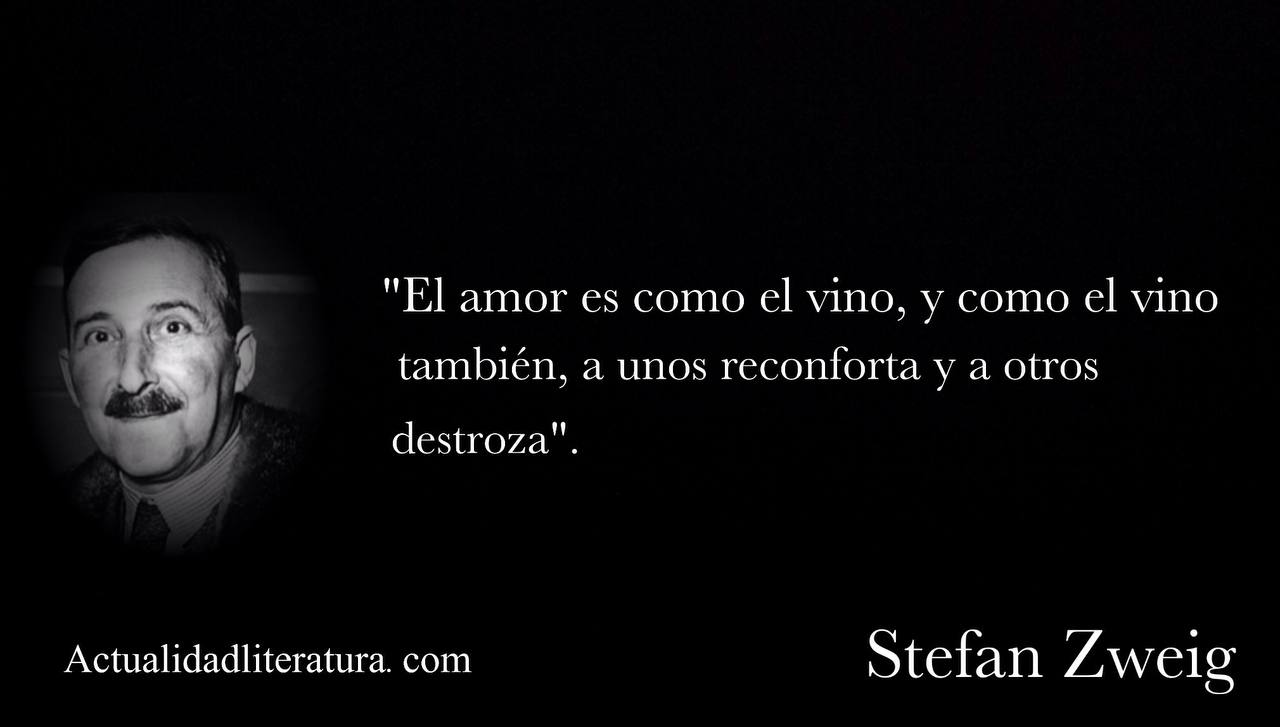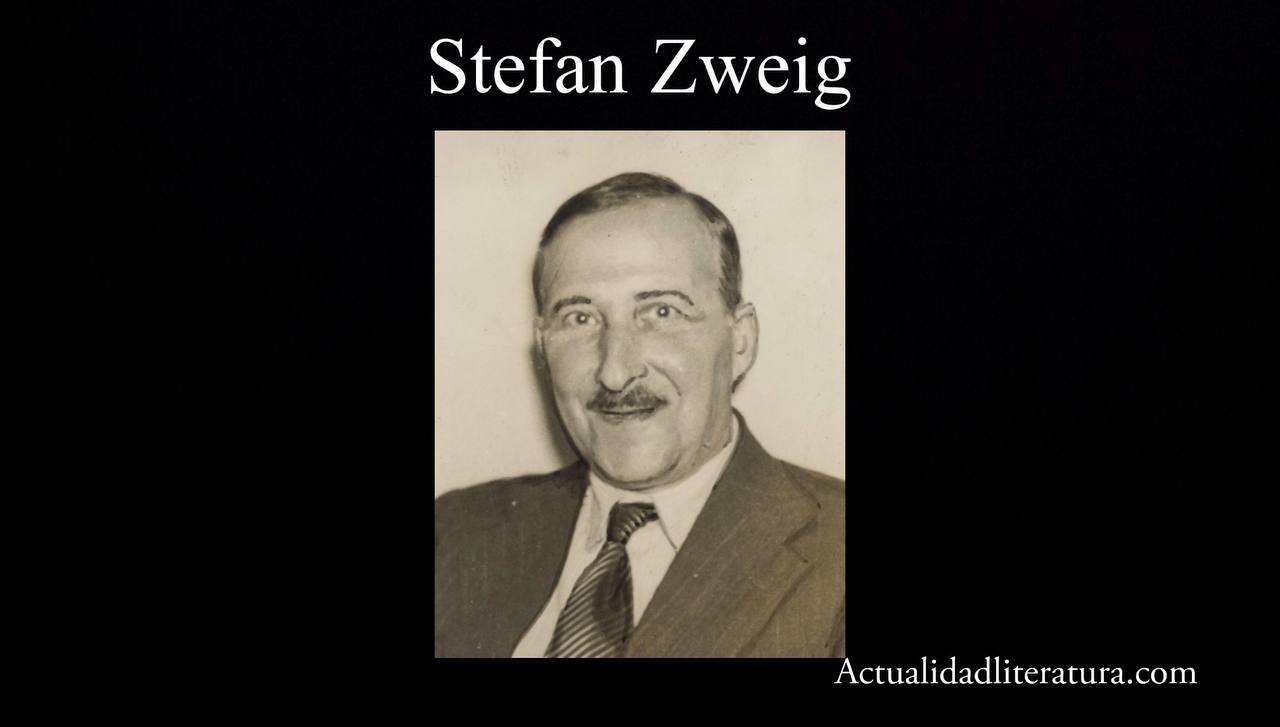
Stefan Zweig Quote
To talk about the best books by Stefan Zweig is to explore the work of a versatile writer who knew how to stand out in various narrative genres. In fact, many of his texts became widely known in Europe during the interwar times. Moreover, several of his biographies broke sales records and even that of Marie Antoinette was brought to the big screen in 1938.
Equally, the Austrian writer was well known thanks to novels such as dangerous piety (1938) o Chess novel (1941), among other. Similarly, he was one of the first famous people of his time to speak out clearly against fascism in Germany after World War I.
Stefan Zweig's best books
the unseen collection (1925)
Die unschtbarre Sammlung —original name in German— It is a dramatic short story highly praised by the literary critics of the time.. It is a story inspired by the hardships caused by the hyperinflation experienced in Germany during the 1920s. There, Zweig introduces a blind old man who owns a fine collection of prints and who was cheated on by his wife and daughter.
Specifically, the protagonist was told that the Germans had won the war. Also, his relatives had to sell the works of art in order to survive and replaced them with copies. These replicas were regularly touched by the old man, who was filled with pride when he felt them (believing they were the originals).
Some details about the story
The aspect most acclaimed by the public and critics was how Zweig involved an external character (the intern) to deepen the plot of the deception. On the other hand, Notably the unseen collection threw himself into the tome Kaleidoscope (1936). Nope However, it is currently possible to obtain this title individually (the 2016 Spanish edition is an 86-page book).
The confusion of feelings (1927)
Verwirrung der Gefühle (in German) It is a short novel that generated a great impact and controversy in the European bourgeois society of the 20s.. This due to the undisguised approach to somewhat thorny issues at that time: homophily and female emancipation. In addition, the Austrian writer took advantage of the context of the text to expand his admiration for Shakespeare.
To do this, Zweig created the character of a well-known professor who, as of his sixtieth birthday, could no longer hide a secret he had kept since his adolescence. Then, the protagonist began a strange relationship with a new colleague, which completely altered the bond with his wife. Thus, he was changing his perspective of literature and affective relationships in general.
Stellar moments of humanity (1927)
This book is an essay composed of a group of novelized literary pieces referring to transcendental historical episodes for all humanity. The text begins with a prologue before proceeding with the explanation of fourteen stellar events selected by Zweig.. They are mentioned below:
- "Cicero, March 15, 44 BC";
- «The conquest of Byzantium. May 29, 1453»;
- "Flight into Immortality: The Discovery of the Pacific Ocean, September 25, 1513";
- "The Resurrection of Georg Friedrich Händel, August 21, 1741";
- «The genius of a night: La Marseillaise, April 25, 1792»;
- "The Universal Waterloo Minute: Napoleon, June 18, 1815";
- The Marienbad Elegy: Goethe between Karlsbad and Weimar, September 5, 1823″;
- "The Discovery of El Dorado: JA Sutter, California, January 1848";
- "Heroic Moment: Dostoevsky, St. Petersburg, Semenovsk Square, December 22, 1849";
- "The First Word Across the Ocean: Cyrus W. Field, July 28, 1858";
- «The flight towards God. Epilogue to Leo Tolstoy's unfinished drama The Light Shines in the Darkness, late October 1910»;
- «The fight for the South Pole: Captain Scott, 90 degrees latitude. January 19, 1912»;
- «The sealed train: Lenin, April 9, 1917»;
- "Wilson Fails, April 15, 1919".
chess novel (1941)
Two staunch opponents meet in a game of chess on board a ship. On one side is Mirko Czentović, the current world champion whose strategy emulates the processing of a machine. On the other, an unknown passenger appears - the Dr B— who bases his game on his difficult personal experiences (he was imprisoned and tortured by the Gestapo).
While in German prison, B stole a chess manual and imagined countless games as a way to ease his grief. However, the match against Czentovic resurrects the traumas of captivity as he mentally predicts the outcome of the match. Already in the denouement of the story, Dr. declares his defeat against a relentless adversary.
Other unmissable titles by Stefan Zweig
- Letter from a stranger (Brief einer Unbekannten, 1922)
- Marie Antoinette (1932);
- dangerous piety (Ungeduld des Herzens, 1939);
- Yesterday's world (1942);
- The intoxication of metamorphosis (Rausch der Verwandlung.
*The last two titles correspond to posthumous publications.
Biography of Stefan Zweig
He was born in Vienna, Austria, on November 28, 1881 —he became a British national in 1939— into a wealthy Jewish family. He received his doctorate in Philosophy from the University of Vienna., where he also studied subjects related to literature. In 1901, he made his literary debut with the lyrical collection silver ropes.

Stefan Zweig
In 1904 he published his first novel. —the wonders of life- in which he showed much
psychological depth in the construction of their characters. When the Great War broke out, he held an office position in the Austro-Hungarian army. However, since then the Austrian author made clear his anti-war position, therefore, he was declared unfit for battle.
First wife and literary consecration
Zweig completed a vast written production among his journalistic works, novels, plays, biographies, tests and translations. References to his numerous travels appear in many of his texts, although Salzburg was his city of residence for nearly two decades. There, he lived together with Friderike Maria Burger von Winternitz, who was his wife from 1920 to 1938.
The Viennese writer reached the pinnacle of literature during the 20s. In fact, some of his books —Stellar moments of humanity (1927), for example— They became the best sellers of their time.. Despite the publishing success, the consolidation of Nazism in the following decade made it increasingly difficult to publish his books.
Second wife, travel and death
In the years before World War II, his work was banned by the fascist regimes in Germany and Italy. In 1939, the Viennese writer married Charlotte Elisabeth Altmann. After the outbreak of the war, he and his spouse settled for a few months in Paris. Then, they went through London, USA, Dominican Republic, Argentina and Uruguay.
Finally, the couple settled in Petrópolis, Brazil, where they committed suicide (due to sedative overdose) the 22 of February of 1942. In this regard, his first wife wrote that Zweig had been a man very prone to depression for long periods since his youth. The global picture of the early 40s was probably too bleak for him.



